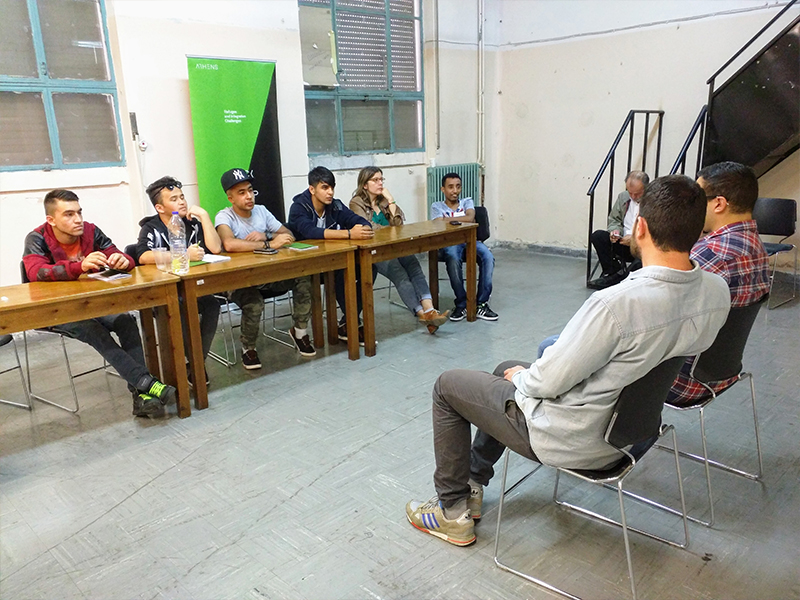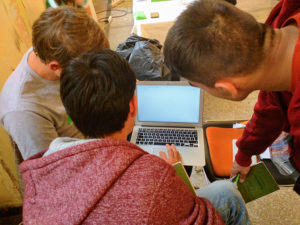
Could a smartphone app make a difference in the lives of some 62,000 refugees and migrants in Greece? Could a mapping tool be part of the solution to the country’s refugee crisis?
A group of technology developers, migration and development experts, refugees and migrants met in Athens in October to try out some tech ideas that could do just that. As part of design teams and as designated assessors of new ideas, unaccompanied refugee minors themselves, a target group for the solutions, evaluated the pitches.
The first in a pair of “hackathons,” Hack the Camp, was an effort to instigate tech-enabled solutions to the refugee crisis in Greece. It is supported by the U.S. Embassy and several local and international organizations including Creative Associates International.
If you aren’t familiar with hackathons, here’s a primer: A hackathon is a several hour event (think marathon) that brings together software developers to use their skills to prototype their ideas or “hack” together solutions in response to a provided prompt.
Popularized in the for-profit tech sector, hackathons are increasingly being held by governments and civil society organizations to spark tech solutions to development problems.
A design that works for the user
“Design with the User,” or “human-centered design,” is recognized as the foremost principle for digital development, increasing the chances of the new tool actually being effectively used by the targeted demographic. Yet this rarely translates into a reality.

Beneficiaries or end users should be active participants in hackathons to allow for a rapid user-centered design process.
For instance, one solution that a Hack the Camp team worked on was a platform for refugees’ stories to be told to the greater public. When the team pitched its idea, the panel of refugees asked why that would be of use to them and whether they would get any financial benefit from the publication of their stories—key points the team had not considered.
In another case, refugees unanimously advised one “makerspace” organizer—which sets up collaborative work spaces for hands-on exploring and training, often in tech—to focus on increasing the skills of immediate users of the space and placing them into jobs, rather than attempting to scale up into more camps.
In this way beneficiaries become co-designers and evaluators of assistance programs—something the development and peacebuilding fields have struggled to achieve.
When I asked people why they chose to participate in Hack the Camp, tech participants and others mentioned empathy for the refugee population and a desire to humanize and solve the refugee problem.
When I spoke to Syrian, Iraqi, Afghani and Pakistani refugees, they talked about how they enjoyed playing a key part in the creative and inclusive process.
In total, Hack the Camp teams generated 33 solution concepts—including an Airbnb-type solution to allow people to make vacant spaces in Athens and elsewhere available to refugees. Airbnb is not affiliated with the hackathon. Other solutions focused on education, jobs, health, urban planning and cultural identity.
Human-centered design and product development specialists guided the teams through a rapid design process, and they have now spent the last two months fleshing out the concepts more.
This Dec. 2 to 4 in Athens, 50 members of selected teams will reassemble to prototype and present their solutions.
What we hope to see are the beginnings of solutions that can make a real difference in the lives of those they are meant to serve—the refugee and migrant community. With human-centered design and refugees as part of design teams and feedback panels, the outlook for achieving this is bright.
To learn more about #PeacehackDC, a peacebuilding hackathon in Washington, D.C., please see: https://www.creativeassociatesinternational.com/news/peacehackdc-generates-new-tech-tools-to-counter-violent-extremism/
Ayan Kishore is Director of Technology for Development at the Creative Development Lab.

